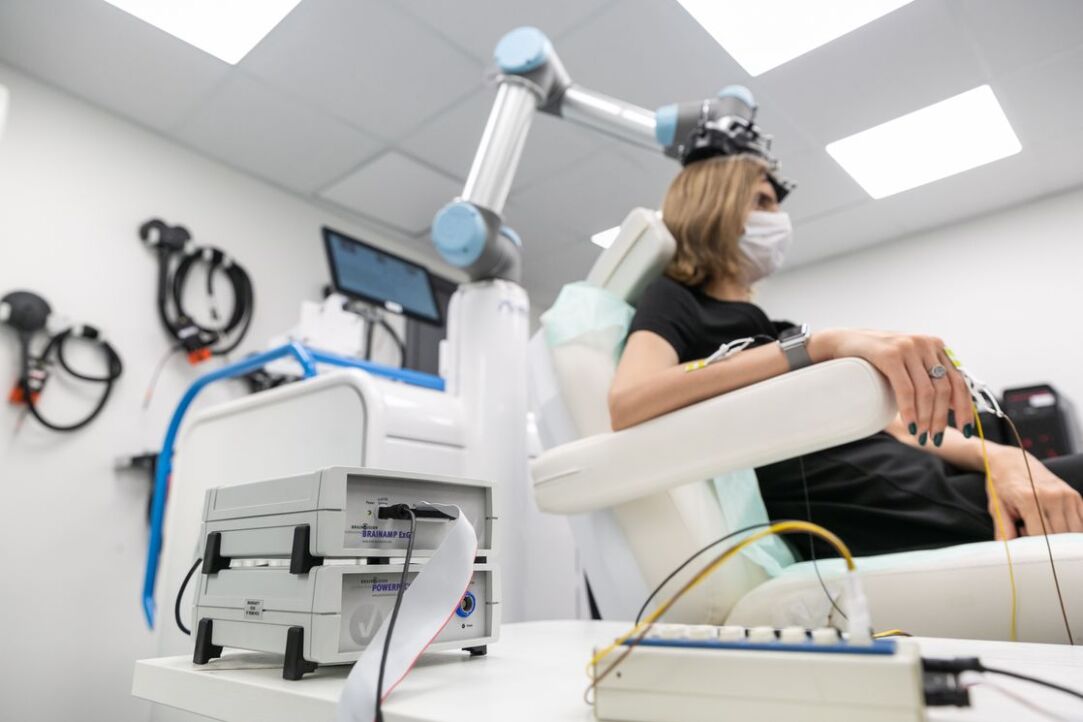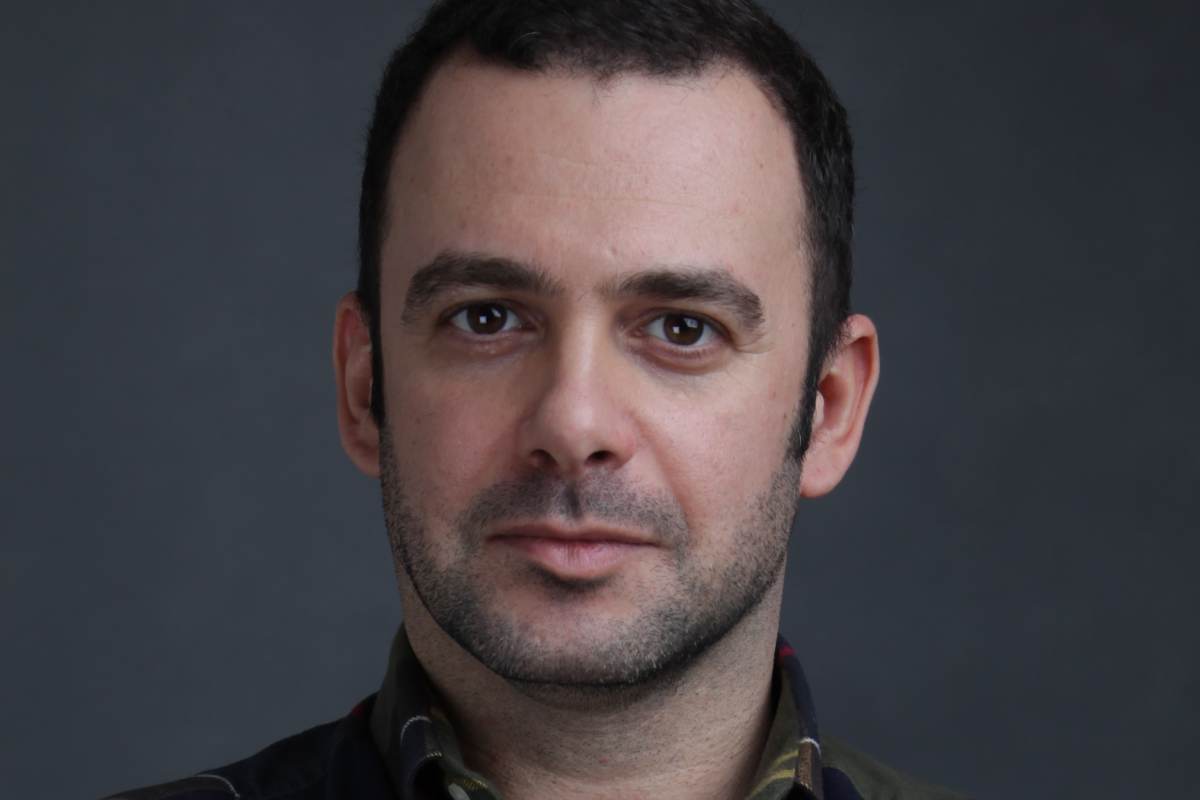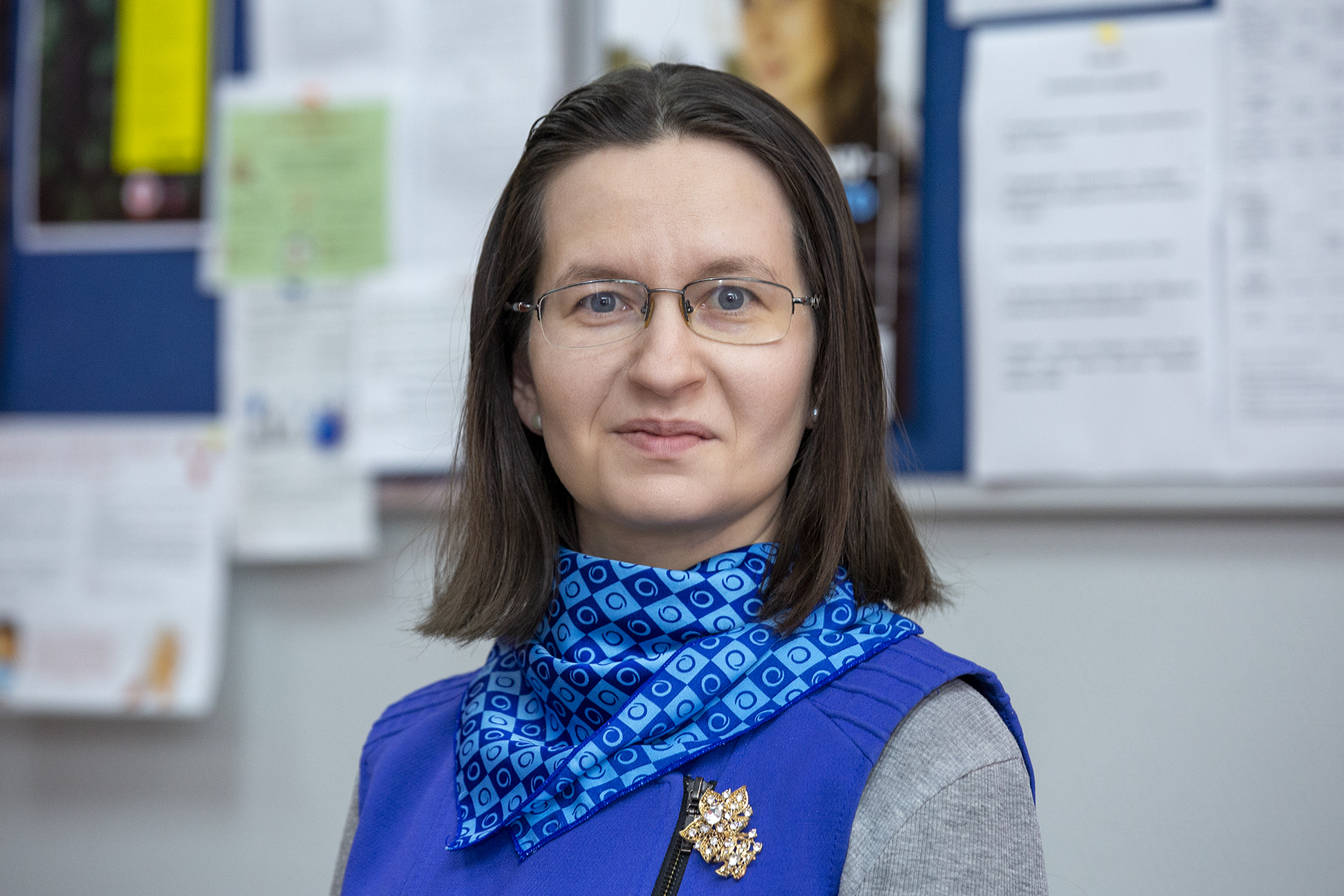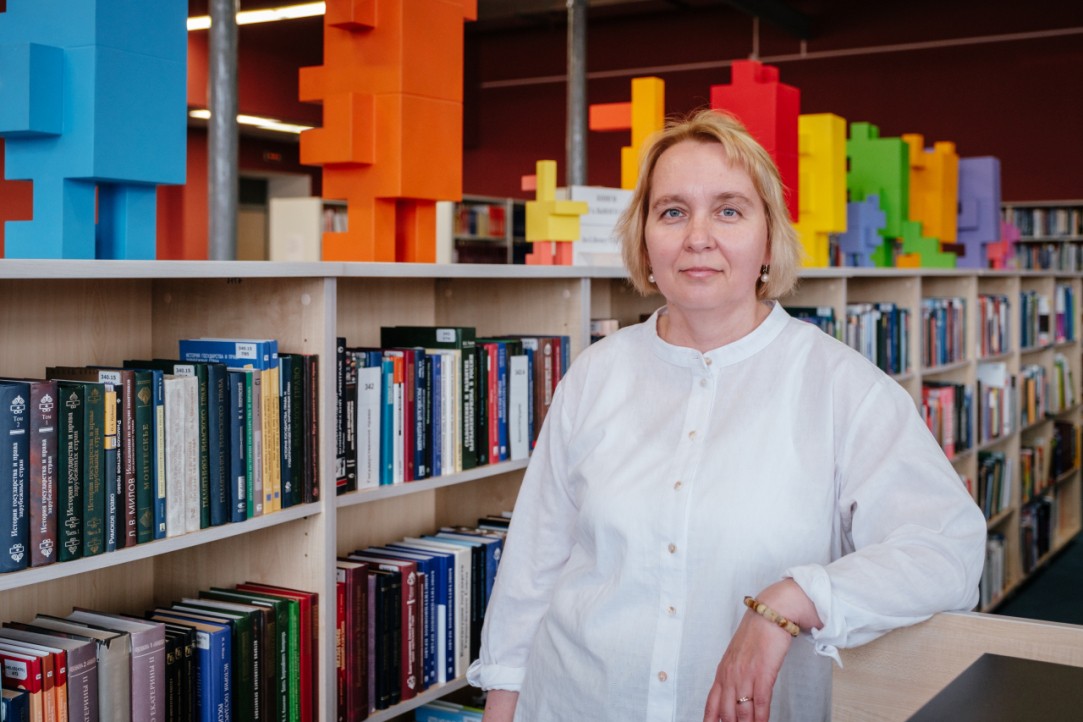Leading HSE University Scientists to Receive Grants from Ideas Research Centre for Neuroscience Research

The Ideas Centre for Advanced Interdisciplinary Research has announced the results of its 2023 competition. Five leading neuroscientists will receive grants to open graduate positions for early-career researchers who want to work on solutions to fundamental problems in this area. Three of the competition winners are scientists from HSE University: Matteo Feurra (HSE University in Moscow), Anastasia Kolmogorova (HSE University in St Petersburg), and Sofia Kulikova (HSE University in Perm).
The competition for postgraduate positions is held annually as part of the long-term, ten-year ‘Brain’ programme of the Ideas Research Centre. Grant assistance will allow young scientists to conduct research under the scientific supervision of the competition winners. The grant allows each winner to attract a promising student capable of demonstrating high-level scientific results, as well as provide an aspiring graduate student with competitive working conditions for an extended period of time. In three years, 29 well-known scientists have passed the rigorous selection process and been named winners. During this time, 112 applications were submitted, including 24 this year.
The Ideas Centre for Advanced Interdisciplinary Research is a non-profit organisation that operates courtesy of voluntary donations. The centre’s mission is to develop science and technology through the creation and use of modern tools to support research and development. Its priority scientific direction is research in the field of neuroscience. Priority technology areas include blockchain, artificial intelligence, and virtual and augmented reality.

Matteo Feurra, Associate Professor at the Institute for Cognitive Neuroscience at HSE University in Moscow, head of the Motor Control Group at the HSE University Centre for Cognition and Decision Making
My research interests span various areas of cognitive neuroscience, with a particular focus on the sensorimotor system and memory processes. I specialise in the application of non-invasive brain stimulation techniques such as Transcranial Magnetic Stimulation (TMS) and Transcranial Electrical Stimulation (TES), including Transcranial Alternating Current Stimulation (tACS). As one of the pioneers in the field of tACS, I have contributed to advancing this novel technique with promising applications. Collaborating with national and international researchers, I have gained valuable insights into brain functions and have contributed to the development of innovative strategies for cognitive rehabilitation.
In addition to my research, I am dedicated to teaching and mentorship. At the Institute for Cognitive Neuroscience, I teach courses on Cognitive Neuroscience and Advanced Neuroimaging Techniques to master's students. I am also actively involved in mentoring undergraduate, postgraduate, and PhD students, fostering their growth in the field. The Institute for Cognitive Neuroscience at HSE provides an exceptional research environment and access to state-of-the-art methods, which greatly support my research endeavours.
I am thrilled to have secured a grant for our groundbreaking project on motor planning and kinematics!
Our research aims to unravel the mysteries of how the brain coordinates movements using cutting-edge techniques like transcranial magnetic stimulation (TMS). The grant will fund a talented PhD student who will delve into this fascinating field
With the funding, we'll investigate the neural underpinnings of motor planning and explore the potential for developing portable motor tracking devices. Imagine real-time feedback on your motor performance, assisting in rehabilitation, sports training, and aiding individuals with motor impairments in their daily lives.
Our PhD student will collaborate with top experts, present findings at prestigious conferences, and publish research papers, contributing to the scientific community's knowledge. This grant propels us toward our goal of revolutionising motor control research and enhancing human motor capabilities.
Together, we're shaping the future of neuroscience and transforming how we understand and optimise our movement abilities

Sofia Kulikova, Senior Research Fellow, Centre for Cognitive Neuroscience, HSE University in Perm
— It is no secret that a successful PhD thesis has several components: the personal qualities of the graduate student, the work of their supervisor, and a relevant, significant research topic. But do not forget that no matter how enthusiastic a graduate student is, no matter how exciting the topic of their research is, researchers still have their daily needs. It is important that graduate students have decent financial support that allows them to devote themselves entirely to scientific work.
This grant will ensure a decent salary for a postgraduate student who will be employed at the Centre for Cognitive Neuroscience at HSE University in Perm for the entire period of postgraduate studies—three years starting from autumn 2024. Thus, we already have three of the four dissertation components: a supervisor (me), an interesting and important research topic (‘Determining the structural and functional correlates of time discounting’), and financial support for the work of the graduate student.
The graduate student will have to figure out why our brain prefers a smaller, but momentary reward to a larger one, but deferred in time
Using various functional and structural approaches, such as EEG and MRI, we will try to distinguish between a brain that is ‘ready to wait’ and an ‘impulsive’ brain that is ‘easily tempted’.
According to the conditions of the Ideas Research Centre competition, during the year we must select a candidate who will be ready to work on their dissertation within the framework of this project. Applicants for this position must graduate from a master’s programme in 2024 and successfully pass the entrance examinations to HSE University’s graduate school and an interview with me as their future academic supervisor.

Anastasia Kolmogorova, professor at the School of Arts and Humanities, HSE University in St Petersburg
— The title of our project is ‘Oculomotor Correlates of Cognitive Processing of Emotional Texts in a Non-Native Language in Turkic-Russian Bilinguals’.
Our team has long been engaged in two topics: the specifics of the language ability of Turkic-Russian bilinguals and the perception of emotions in text data. In this application, we decided to combine them.
Previous studies have been related to the measurement of psycholinguistic parameters of Russian and Tuvan words in Tuvan-Russian bilinguals. In addition, we analyse how certain emotions are manifested in speakers through facial expressions, voice, and words and how large language models capture these manifestations; we create interfaces for labelling data on emotions.
The hypothesis that we will be testing as part of the grant was suggested by one of the pilot experiments: there were short texts on VK, where it was proposed to evaluate what kind of emotion was expressed and how strongly it was expressed. At first, people who speak only Russian participated, and then Tuva-Russian bilinguals. The scores differed significantly. For example, bilinguals did not find any emotions of shame in those texts that native Russian speakers rated as shameful.
We decided to continue the same experiment by expanding the cohort of study participants: we will take not only Tuva-Russian bilinguals, but also speakers of other Turkic languages of South Siberia
We will also apply the eye-tracking technology to observe the movement of the eyes of bilinguals when reading and evaluating emotional texts. This will allow us to understand what words such informants rely on when they decide on an emotion in the text. Further on, with the help of machine learning, we want to identify some typical strategies for such behaviour.
See also:
Banking Crises Drive Biodiversity Loss
Economists from HSE University, MGIMO University, and Bocconi University have found that financial crises have a significant negative impact on biodiversity and the environment. This relationship appears to be bi-directional: as global biodiversity declines, the likelihood of new crises increases. The study examines the status of populations encompassing thousands of species worldwide over the past 50 years. The article has been published in Economics Letters, an international journal.
Scientists Discover That the Brain Responds to Others’ Actions as if They Were Its Own
When we watch someone move their finger, our brain doesn’t remain passive. Research conducted by scientists from HSE University and Lausanne University Hospital shows that observing movement activates the motor cortex as if we were performing the action ourselves—while simultaneously ‘silencing’ unnecessary muscles. The findings were published in Scientific Reports.
Russian Scientists Investigate Age-Related Differences in Brain Damage Volume Following Childhood Stroke
A team of Russian scientists and clinicians, including Sofya Kulikova from HSE University in Perm, compared the extent and characteristics of brain damage in children who experienced a stroke either within the first four weeks of life or before the age of two. The researchers found that the younger the child, the more extensive the brain damage—particularly in the frontal and parietal lobes, which are responsible for movement, language, and thinking. The study, published in Neuroscience and Behavioral Physiology, provides insights into how age can influence the nature and extent of brain lesions and lays the groundwork for developing personalised rehabilitation programmes for children who experience a stroke early in life.
HSE Scientists Reveal What Drives Public Trust in Science
Researchers at HSE ISSEK have analysed the level of trust in scientific knowledge in Russian society and the factors shaping attitudes and perceptions. It was found that trust in science depends more on everyday experience, social expectations, and the perceived promises of science than on objective knowledge. The article has been published in Universe of Russia.
Scientists Uncover Why Consumers Are Reluctant to Pay for Sugar-Free Products
Researchers at the HSE Institute for Cognitive Neuroscience have investigated how 'sugar-free' labelling affects consumers’ willingness to pay for such products. It was found that the label has little impact on the products’ appeal due to a trade-off between sweetness and healthiness: on the one hand, the label can deter consumers by implying an inferior taste, while on the other, it signals potential health benefits. The study findings have been published in Frontiers in Nutrition.
HSE Seeks New Ideas for AI Agents: Initiative Competition Launched
HSE University is inviting researchers and lecturers to present concepts for new digital products based on artificial intelligence. The best projects will receive expert and technological support. Applications are open until December 19, 2025.
IDLab: Fascinating Research, Tough Deadlines, and Academic Drive
The International Laboratory of Intangible-driven Economy (IDLab) was established at the HSE campus in Perm 11 years ago. Its expertise in data processing and analysis allows researchers to combine fundamental studies with applied projects, including the development of risk and cybersecurity models for Sber. The head of the laboratory, Professor Petr Parshakov, and Senior Research Fellow Professor Mariya Molodchik spoke to the HSE News Service about IDLab’s work.
HSE Lecturers Awarded Yandex ML Prize 2025
The Yandex ML Prize is awarded to lecturers and heads of educational programmes who contribute to the development of artificial intelligence in Russia. This year, 10 laureates were selected from 300 applicants, including three members of the HSE Faculty of Computer Science (FCS). A special Hall of Fame award was also presented for contributions to the establishment of machine learning as an academic field. One of the recipients was Dmitry Vetrov, Research Professor at the HSE FCS.
HSE University and Banking and Finance Academy of Uzbekistan Sign Memorandum on Scientific Cooperation
The partnership aims to foster academic collaboration in the fields of global economics, sustainable development, and Islamic finance. Strengthening academic ties with Uzbekistan represents a promising direction for scientific exchanges and the implementation of international projects in sustainable development.
HSE Scientists Optimise Training of Generative Flow Networks
Researchers at the HSE Faculty of Computer Science have optimised the training method for generative flow neural networks to handle unstructured tasks, which could make the search for new drugs more efficient. The results of their work were presented at ICLR 2025, one of the world’s leading conferences on machine learning. The paper is available at Arxiv.org.


